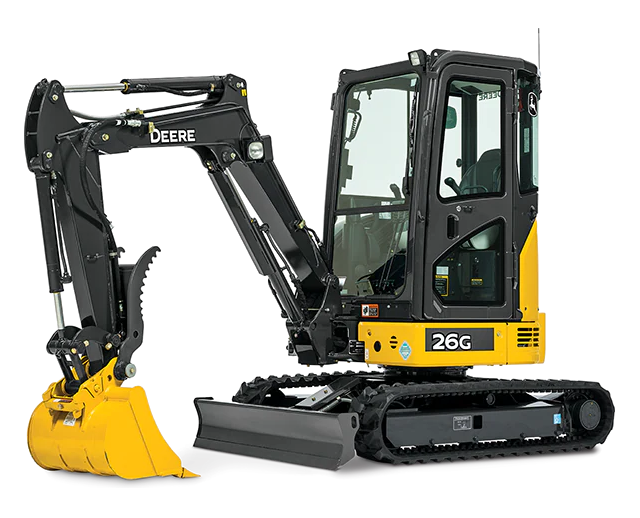Rental Company Near Me: Regional Solutions for Equipment Rentals
Rental Company Near Me: Regional Solutions for Equipment Rentals
Blog Article
Optimize Your Budget Plan by Comprehending the Costs Connected With Building Equipment Services
Recognizing the full scope of costs connected with building and construction devices rentals is crucial for optimizing your budget plan. While the initial rental fee might seem uncomplicated, numerous additional expenditures-- such as transportation, fuel additional charges, and maintenance-- can promptly gather, affecting your financial preparation. Furthermore, knowing various charges and the ins and outs of rental agreements can aid avoid unanticipated economic worries. What techniques can be used to efficiently manage these expenses and make sure a more effective rental experience?
Overview of Rental Expenses
When considering building equipment services, comprehending the linked expenses is critical for effective budgeting and task planning. Rental expenses can vary considerably based on several variables, including tools type, duration of leasing, and location. The initial rental charge often shows the tools's market demand and its linked functional capabilities, affecting the overall cost.
In addition to the base rental price, supplementary prices might occur, such as transport fees, fuel additional charges, and upkeep fees. It is vital to represent these added expenses to precisely analyze the complete expense of renting out tools. The rental duration can influence pricing; longer leasings may certify for affordable prices, while temporary leasings could sustain higher daily costs.

Break Down of Rental Rates
A thorough understanding of rental prices is crucial for contractors and project supervisors intending to maximize their budgets. Rental rates for construction equipment generally include numerous parts, including base rates, time-based charges, and use charges.
Base rates are the core charges connected with the rental of the tools, usually figured out by the type and size of the machinery. These prices can vary considerably, influenced by variables such as devices demand, availability, and local market patterns. Time-based charges, which might be daily, weekly, or monthly, serve to suit different project timelines and rental periods.
In addition, rental rates might include use charges, which apply when equipment is made use of beyond a specified limit, guaranteeing that the rental firm can represent wear and tear. Seasonal need changes can also impact rental rates, with peak building and construction seasons typically regulating higher rates.
Furthermore, understanding the rental business's plans regarding upkeep and insurance can give further understanding into the overall price structure. By assessing these components, service providers can make informed choices, guaranteeing the selection of rental tools aligns with both job needs and budget restrictions.
Added Costs to Take Into Consideration
Understanding the complexities of added fees is essential for specialists to manage their general service expenditures effectively. Past the standard rental rates, different supplemental fees can substantially influence the complete expense of devices leasing. These charges commonly consist of shipment and pickup costs, which can vary based on range and logistics associated with transporting the equipment to and from the work site.
Moreover, some rental companies might enforce gas surcharges if the tools is returned with much less gas than when leased. It is likewise vital to be conscious of potential cleansing charges, especially for specialized equipment that calls for detailed maintenance after use.

Extensively evaluating the rental agreement and clearing up these additional fees upfront can assist contractors make sure and avoid unanticipated expenses that budgets continue to be intact throughout the task lifecycle.
Repair And Maintenance Costs
Normal informative post maintenance and repair costs are frequently forgotten elements that can dramatically affect the general price of building tools rentals. When renting out equipment, it is crucial to consider not just the rental charges yet also the possible expenses associated with keeping the equipment in optimum operating condition.
Several rental companies include fundamental upkeep as component of the rental contract; however, much more read review substantial repairs or unanticipated break downs can bring about additional costs. It's necessary to examine the rental agreement carefully to understand what maintenance services are covered and what obligations fall on the occupant.
Furthermore, equipment that is not well-kept can cause ineffectiveness on duty site, potentially triggering hold-ups and boosting task costs. To reduce these risks, it is recommended to carry out routine evaluations and preserve open communication with the rental supplier relating to any type of problems that occur during usage.
Insurance Policy and Obligation Costs
Insurance policy and responsibility prices are important parts that can significantly influence the total cost of building equipment services (aerial lift rental). These prices make sure that both the rental company and the customer are secured from prospective financial losses arising from accidents, damages, or theft throughout the rental period

Furthermore, clients need to understand any type of deductibles or exemptions in the insurance plan, as these can influence potential out-of-pocket costs. Recognizing the terms of any kind of insurance coverage is important to prevent unexpected expenses. Inevitably, budgeting for insurance and responsibility expenses can visit here assist make certain a smoother rental experience and safeguard versus economic risks related to construction projects.
Final Thought
In verdict, a thorough understanding of the costs connected with construction equipment services is crucial for reliable budget plan administration. Ultimately, informed decision-making pertaining to tools leasings contributes to the total success of building undertakings.
Rental prices can vary considerably based on several variables, including equipment type, period of leasing, and place (equipment rental company). The rental period can affect pricing; longer services might certify for discounted prices, while short-term services may sustain higher daily fees
By conducting thorough research and involving with trustworthy rental business, contractors can successfully navigate the intricacies of rental pricing, inevitably maximizing their economic resources.
Beyond the standard rental rates, numerous supplemental costs can considerably influence the total expense of tools rental. Rental business frequently give liability insurance coverage that covers injuries to 3rd events or damage to residential property, while tools damages insurance coverage can cover the expense of repair services or replacement if the rented tools is damaged.
Report this page